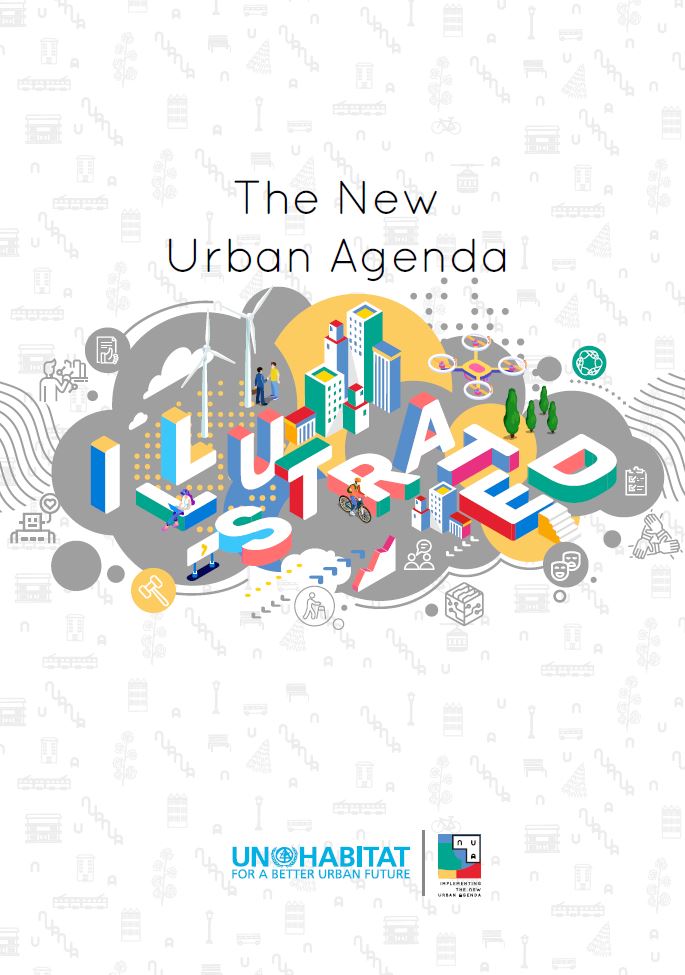The New Urban Agenda Illustrated Handbook

The New Urban Agenda, adopted at Habitat III in Quito, Ecuador, on 20 October 2016, presents a paradigm shift based on the science of cities and lays out standards and principles for the planning, construction, development, management and improvement of urban areas. It is intended as a resource for different actors in multiple levels of government and for civil society organizations, the private sector and all who reside in urban spaces of the world.
The New Urban Agenda highlights linkages between sustainable urbanization and job creation, livelihood opportunities and improved quality of life, and it insists on incorporation of all these sectors in every urban development or renewal policy and strategy.
The 'New Urban Agenda Illustrated' handbook prepared for all urban stakeholders globally supports a stronger understanding and implementation of the propositions contained in the New Urban Agenda. It subdivides and maps the New Urban Agenda into three chapters: 1) Core Dimensions, 2) Means of Implementation and 3) Governance, Follow-up and Review.
The handbook analyses the contents and propositions of the New Urban Agenda and their synergies with the Sustainable Development Goals and Targets, and enriches them with visual illustrations, examples from all over the world and practical propositions for action.
Abstract based directly on the original source.


Comments